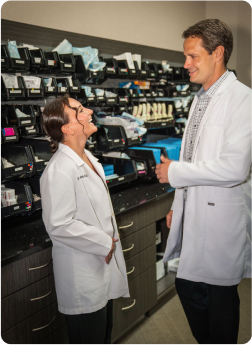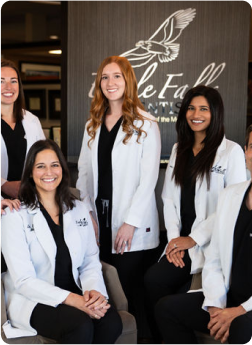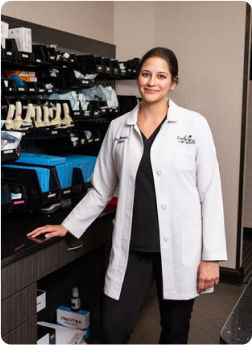Dental Tooth Extractions
Tooth Extractions
Your dentist will numb the area to lessen any discomfort. After the extraction, your dentist will advise you of what post extraction regimen to follow, in most cases a small amount of bleeding is normal.
Avoid anything that might prevent normal healing. It is usually best not to smoke or rinse your mouth vigorously, or drink through a straw for 24 hours. These activities could dislodge the clot and delay healing.
For the first few days, if you must rinse, rinse your mouth gently afterward, for pain or swelling, apply a cold cloth or an ice bag. Ask your dentist about pain medication. You can brush and floss the other teeth as usual. But don’t clean the teeth next to the tooth socket.
When having an extraction, today’s modern procedures and follow up care as recommended by your dentist are there to provide you the patient great benefit and comfort.
What Happens During a Tooth Extraction?
The steps of a tooth extraction procedure will vary depending on the severity of the situation. Some teeth are more easily removed than others, as some teeth may be impacted, or below the gumline, making a more invasive surgical procedure necessary. This is often the case with wisdom teeth removal.
In the simplest cases where the tooth is visible above the gumline, a dental extraction is a very easy procedure. The dentist will numb the area with a local anesthetic and pull the tooth out using the proper dental tools. Extractions of impacted teeth must be done by an oral surgeon, and often you’ll receive general anesthesia to put you to sleep during the procedure. The impacted tooth is then removed through an incision made in the gum, and it may even be broken into pieces first for easier removal.
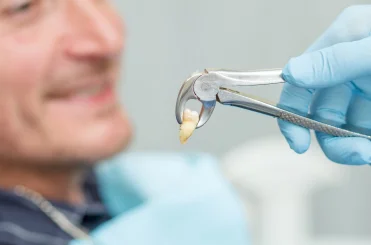
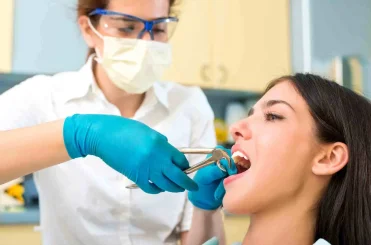
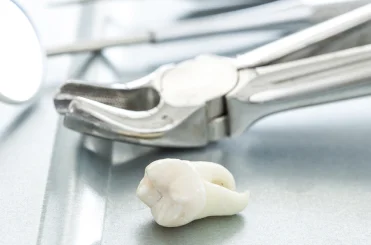
When Is a Tooth Extraction Needed?
There are a few different reasons why you may need a tooth extraction. Regardless of the reason, extracting a tooth is meant to preserve your oral health and prevent future dental problems. Your dentist at Eagle Falls Dentistry will be able to fully explain why the tooth should be extracted and the ways in which it will help you in the future.
Some of the main reasons you may need to have a dental extraction include:
Not Enough Space
Sometimes teeth are simply too big for a patient’s mouth, and there isn’t enough room for all of them. It’s possible for you to have a tooth that isn’t even able to erupt through the gumline because there is no space for it. In this case, a dentist may recommend removing the tooth.
Infection
Tooth decay or damage can allow an infection to reach the pulp of the tooth. In some cases, this infection can become so bad that a root canal and antibiotics are not enough to cure it. This is a time we would recommend tooth extraction to prevent the infection from spreading to other areas in the mouth.
Prevent Crowding or Misalignment
Wisdom teeth are not necessary for oral function and often cause more harm than good. When they erupt into the mouth, they can cause crowding and may undo the work of orthodontia by causing teeth to become misaligned. For this reason, many dentists will recommend having your wisdom teeth removed before they erupt.
How to Prevent the Need for a Tooth Extraction
The best way to prevent a tooth extraction is to properly care for your teeth. This means establishing good oral hygiene habits, like brushing twice a day and flossing at least once a day.
You should also visit your dentist for regular checkups and cleanings every six months as this will help keep your mouth healthy and identify any problems early. Eating a well-balanced diet and limiting your sugar intake will also help prevent cavities and other problems that may lead to tooth extractions.
How to Care for Your Teeth After an Extraction
If you’re scheduled to have a tooth removed, you may be wondering about aftercare and what you’ll be able to eat after tooth extraction. Though our dentists will give you a full rundown of the steps to take to ensure healing, it’s never a bad idea to know ahead of time.
You’ll want to stick to a diet of soft and healthy foods and make sure you’re drinking plenty of liquids. Brush your teeth gently, taking special care around the area of the extraction. You won’t want to brush that area directly until it begins to heal. After 12 hours, you will want to rinse your mouth and continue rinsing three times a day to keep the extraction site clean.

